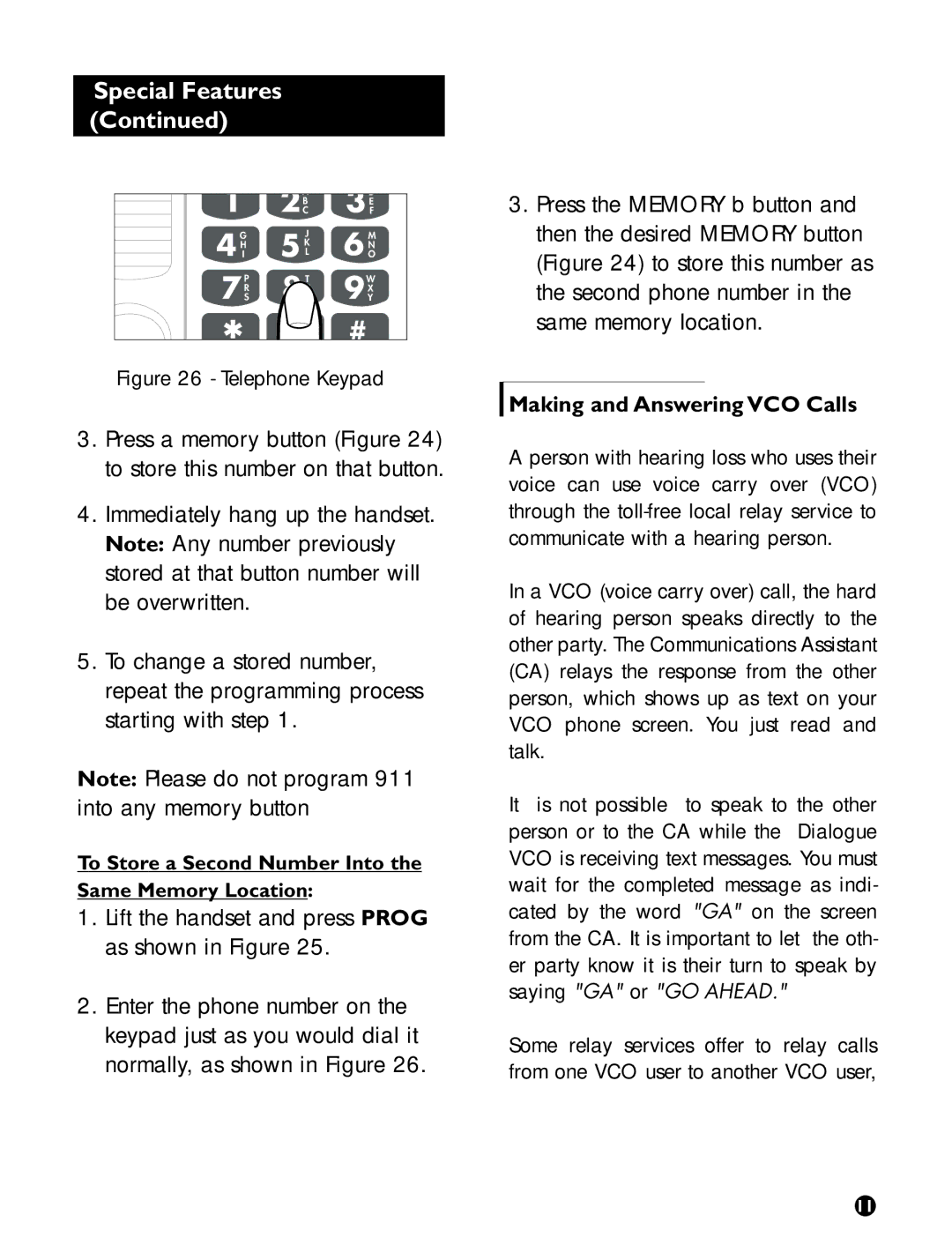
Special Features (Continued)
1 | 2CB | 3 EF |
G | J | M |
4 HI | 5 L | 6 ON |
| K |
|
P | T | W |
7RS | 8UV | 9XY |
* | O | # |
0 E | ||
| P |
|
Figure 26 - Telephone Keypad
3.Press a memory button (Figure 24) to store this number on that button.
4.Immediately hang up the handset. Note: Any number previously stored at that button number will be overwritten.
5.To change a stored number, repeat the programming process starting with step 1.
Note: Please do not program 911 into any memory button
To Store a Second Number Into the Same Memory Location:
1.Lift the handset and press PROG as shown in Figure 25.
2.Enter the phone number on the keypad just as you would dial it normally, as shown in Figure 26.
3.Press the MEMORY b button and then the desired MEMORY button (Figure 24) to store this number as the second phone number in the same memory location.
Making and Answering VCO Calls
A person with hearing loss who uses their voice can use voice carry over (VCO) through the
In a VCO (voice carry over) call, the hard of hearing person speaks directly to the other party. The Communications Assistant (CA) relays the response from the other person, which shows up as text on your VCO phone screen. You just read and talk.
It is not possible to speak to the other person or to the CA while the Dialogue VCO is receiving text messages. You must wait for the completed message as indi- cated by the word "GA" on the screen from the CA. It is important to let the oth- er party know it is their turn to speak by saying "GA" or "GO AHEAD."
Some relay services offer to relay calls from one VCO user to another VCO user,
11
